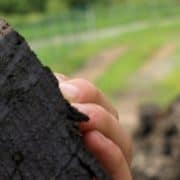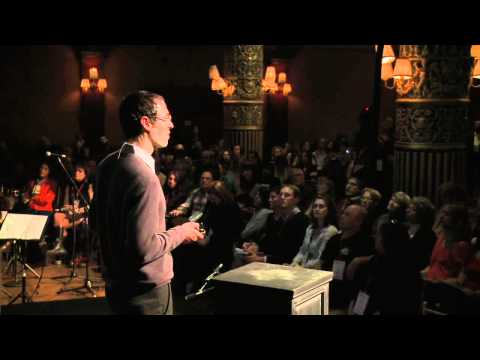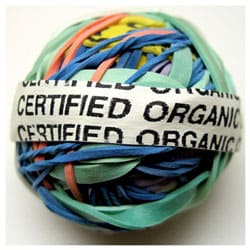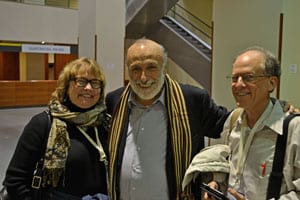Organic Food Production Can Feed the World
Barry Estabrook is well-known for his new book “Tomatoland” that shows how, exactly, those perfect red, round, hard and tasteless tomatoes show up on our grocery store shelves. Here is an article that he wrote on the ongoing debate of how are we going to feed ouselves- all of us- in the coming years. Please take the time to look at the links to articles and studies, it’s well worth your time!
The Atlantic Home
Read the original article online at:
http://www.theatlantic.com/health/archive/2011/12/organic-can-feed-the-world/249348/
Organic Can Feed the World
By Barry Estabrook“Given that current production systems leave nearly one billion people undernourished, the onus should be on the agribusiness industry to prove its model, not the other way around.”
“We all have things that drive us crazy,” wrote Steve Kopperud in a blog post this fall for Brownfield, an organization that disseminates agricultural news online and through radio broadcasts. Kopperud, who is a lobbyist for agribusiness interests in Washington, D.C., then got downright personal: “Firmly ensconced at the top of my list are people who consider themselves experts on an issue when judging by what they say and do, they’re sitting high in an ivory tower somewhere contemplating only the ‘wouldn’t-it-be-nice’ aspects.”
At the top of that heap, Kopperud put Michael Pollan and Marion Nestle, a contributor to Atlantic Life and the author of Food Politics, the title of both her most well-known book and her daily blog.
“There’s a huge chunk of reality missing from Dr. Nestle’s academic approach to life,” Kopperud wrote. “The missing bit is, quite simply, the answer to the following question: How do you feed seven billion people today and nine billion by 2040 through organic, natural, and local food production?” He then answers his own question. “You can’t.”
What is notably lacking in the “conventional” versus organic debate are studies backing up the claim that organic can’t feed the world’s growing population.
As a journalist who takes issues surrounding food production seriously, I too have things that drive me crazy.
At the top of my list are agribusiness advocates such as Kopperud (and, more recently, Steve Sexton of Freakonomics) who dismiss well-thought-out concerns about today’s dysfunctional food production system with the old saw that organic farming can’t save the world. They persist in repeating this as an irrefutable fact, even as one scientific study after another concludes the exact opposite: not only that organic can indeed feed nine billion human beings but that it is the only hope we have of doing so.
“There isn’t enough land to feed the nine billion people” is one tired argument that gets trotted out by the anti-organic crowd, including Kopperud. That assertion ignores a 2007 study led by Ivette Perfecto, of the University of Michigan, showing that in developing countries, where the chances of famine are greatest, organic methods could double or triple crop yields.
“My hope is that we can finally put a nail in the coffin of the idea that you can’t produce enough food through organic agriculture,” Perfecto told Science Daily at the time.
Too bad solid, scientific research hasn’t been enough to drive that nail home. A 2010 United Nations study (PDF) concluded that organic and other sustainable farming methods that come under the umbrella of what the study’s authors called “agroecology” would be necessary to feed the future world. Two years earlier, a U.N. examination (PDF) of farming in 24 African countries found that organic or near-organic farming resulted in yield increases of more than 100 percent. Another U.N.-supported report entitled “Agriculture at a Crossroads” (PDF), compiled by 400 international experts, said that the way the world grows food will have to change radically to meet future demand. It called for governments to pay more attention to small-scale farmers and sustainable practices — shooting down the bigger-is-inevitably-better notion that huge factory farms and their efficiencies of scale are necessary to feed the world.
Suspicious of the political motives of the U.N.? Well, there’s a study that came out in 2010 from the all-American National Research Council. Written by professors from seven universities, including the University of California, Iowa State University, and the University of Maryland, the report finds that organic farming, grass-fed livestock husbandry, and the production of meat and crops on the same farm will be needed to sustain food production in this country.
The Pennsylvania-based Rodale Institute is an unequivocal supporter of all things organic. But that’s no reason to dismiss its 2008 report “The Organic Green Revolution” (PDF), which provides a concise argument for why a return to organic principles is necessary to stave off world hunger, and which backs the assertion with citations of more than 50 scientific studies.
Rodale concludes that farming must move away from using unsustainable, increasingly unaffordable, petroleum-based fertilizers and pesticides and turn to “organic, regenerative farming systems that sustain and improve the health of the world population, our soil, and our environment.” The science the report so amply cites shows that such a system would
- give competitive yields to “conventional” methods
- improve soil and boost its capacity to hold water, particularly important during droughts
- save farmers money on pesticides and fertilizers
- save energy because organic production requires 20 to 50 percent less input
- mitigate global warming because cover crops and compost can sequester close to 40 percent of global CO2 emissions
- increase food nutrient density
What is notably lacking in the “conventional” versus organic debate are studies backing up the claim that organic can’t feed the world’s growing population. In an exhaustive review using Google and several academic search engines of all the scientific literature published between 1999 and 2007 addressing the question of whether or not organic agriculture could feed the world, the British Soil Association, which supports and certifies organic farms, found (PDF) that there had been 98 papers published in the previous eight years addressing the question of whether organic could feed the world. Every one of the papers showed that organic farming had that potential. Not one argued otherwise.
The most troubling part of Kopperud’s post is where he says that he finds the food movement of which Pollan and Nestle are respected leaders “almost dangerous.” He’s wrong. The real danger is when an untruth is repeated so often that people accept it as fact.
Given that the current food production system, which is really a 75-year-old experiment, leaves nearly one billion of the world’s seven billion humans seriously undernourished today, the onus should be on the advocates of agribusiness to prove their model can feed a future population of nine billion — not the other way around.
Copyright © 2012 by The Atlantic Monthly Group. All Rights Reserved.
The most powerful, compelling statements of this article are in the last three paragraphs, appropriately enough. The statement by conventional, industrial Agribusiness advocates and lobbyists is repeated often enough, and with a chilling similarity to the GMO statements to make us believe them, just because we hear it non-stop. Interestingly, those statements are all about quantity, yield and production with no mention of nutrition, quality and health- of the soil, plants and the people eating them. One of the major disconnects of modern, industrial agribusiness is the intense focus on throughputs (chemicals) and outputs (production) that leads to profits, without acknowledging just what it is that the system is creating- food, the third most important ingredient in life, behind air and water. Food that should nourish, heal and energize us, not just keep us alive.
Conventional agriculture should be made to prove its mantra of being the only solution to feeding the world, seeing how at the same time it is failing to do just that by leaving 1 out of 7 of the current world population undernourished or starving. It is very curious to see how organic, local agriculture is dismissed out of hand as being an almost ridiculous fantasy notion, while there has been no proof offered at all to support its claim.
A rational, reasoned debate would be possible if there were a few studies that supported the industrial agribusiness’ position with the same quality of studies as those 98 showing organic, local agriculture can, in fact, feed us.










To me the most compelling reason to go organic is for the obvious health benefits of eating the food that is grown organically. Also missing is the information about the devastating effects of the world eating all of the processed foods. How about heart disease, diabetes, and many others. The agribusiness industry and the processed foods that come from it are killing the general population.
Thanks for your comments Hobby, but I think that you are missing the point of the article.
It is not about the health benefits of eating organic food, nor the dangers of industrial, processed foods. The article is about the fact that industrial, corporate agriculture has said for some time now that the local, organic agricultural model cannot feed the world, without providing any proof of it’s argument. At the same time, there have been at least 98 peer-reviewed papers between 1999 and 2007 showing that local organic agriculture can, in fact, feed the world. That is the thrust of the article.
I do, however, completely agree with your statements. That is one of the reasons we provide not only seeds but soil building and gardening education along with recipes on how to prepare the fresh, healthy food that comes from your garden.